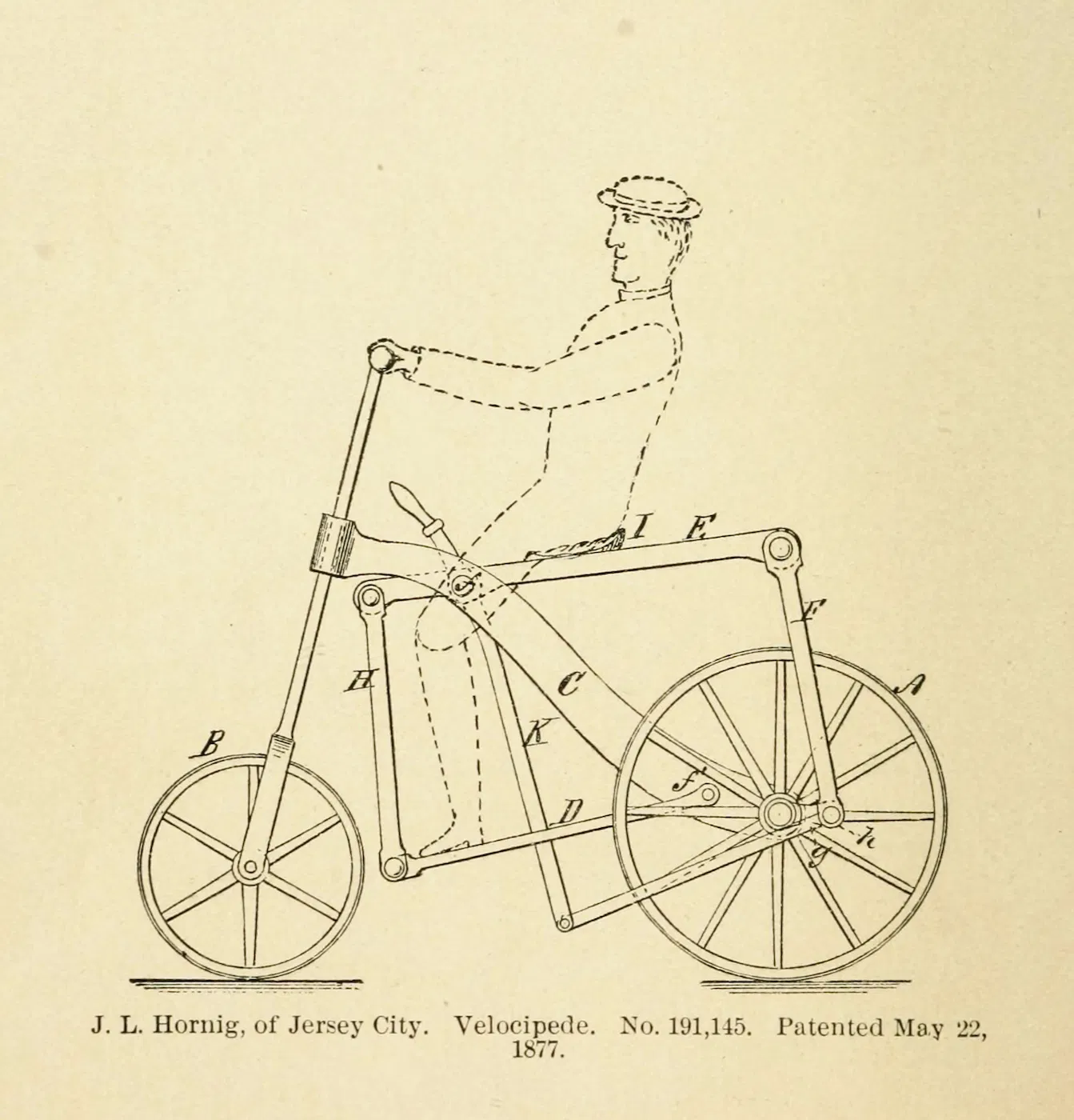Errand
David Daniel
After dropping out, I scan the wanted ads for work downtown and decide to apply for a courier job. The guy who hires me has a flamingo tattoo on his pudgy calf. As I sign the paperwork, he tells me a messenger got crushed by a dump truck last week. Digging in a red milk crate for a two-way radio, he urges me to keep my head on straight, not to do what that courier did.
Midway down a dim hallway, we stop at dispatch. Giant street maps wallpaper the room, inky sticky notes fluttering in the breeze of a beige pivot fan. A man with bottlecap glasses and a combover talks into a bulky base mic, telling a messenger to stand by. He flicks us a wave as he picks up a warbling landline. That man will be your lifeline, he says, ushering me to the elevator.
From here on out, I spend ten hours a day outside in the elements, a manganese-gray chain locked around my waist, a single cyclist adrift in a sea of vehicles. In this city, our east west streets climb the alphabet, our three-letter agencies born of a similar soup. In spring, our cherry blossoms sweeten the exhaust-clogged streets with hints of vanilla. Autumn brings the kingly days. Oaks go burgundy. Maples flare red. These are the brief weeks you feel on top of the whole fucking world, the man with the best gig in town, a job to make a head of state jealous. But the golden mood sours in winter when the ice storm hits. It glazes asphalt like glass, snaps power lines, overloads substations, blacks out entire counties. Coldest I’ve ever been in my life, cycling along the southern side of the frozen river on my way to work, slicing a lone line in the snowed-over path, my breath a fog in the predawn dark, the city still in its muffled slumber.
Sometimes while I weave through traffic, I think back to my childhood rides on these selfsame streets. Dirt bike excursions around the lesser-traveled quadrants. Daylong wanderings that once landed me on the freeway in Southeast, biking along a bumpy grass verge beside a stream of vehicles, later crossing the drawbridge at sunset, dodging auto debris on an iffy shoulder. Ride, ride is what I did when Grandpa died, the fire-eater whose life most shaped mine.
The one friend I make is a shaggy-haired guy getting his GED. He dashes in the alleycats, laps the velodrome on weekends. In his courier bag, he keeps a jumbo marker with a fat chisel tip. Tags street signs and payphones on his pick-ups and drop-offs. The last time I see him, he’s got a gash beneath his eye. Says somebody loosened his front axle while his bike was locked up. When he popped down the curb, his wheel fell out—ate it in the face. He claims it’s sabotage, some beef over graffiti—straight up disappears from the streets. Word is he couriers in Tokyo.
Soon enough my crashes come, too. A taxi buckles my spokes a block north of the press club, damn near drags me under his chassis. Another comes as I misjudge a left-hand turn. The oncoming van clips my wheel and tosses me to the concrete. My third occurs when a limo driver opens his door as I ride past. Its steel edge sinks into my shoulder as I hurtle over the window, knocking the glass into his face. Blood drips from his split lip, marring his starched white tuxedo shirt. Despite all that, the thousands of road miles fine-tune my momentum into a ballet of gyroscopic resistance, my feet one with the fixed drivetrain, a fluid symbiosis of body and bike.
Some dawns you feel mortality’s inklings, as if today is the day to meet your maker. You try to shake it, to ride on into the new day’s dice roll, to cheat fate, straddling that double yellow line as box trucks fly by on either side. But over time it gnaws at you—the hairsbreadth of death. And yet, despite sun and heat and ice and rain, this feels like life at its fullest, wayward and free.
Some workdays are so sublime I cannot help but cap them off with a paper bag of malt liquor. I drink in the dark of the park, and later tip over on the bike path home. Other nights end in a back-alley lesbian bar, lush in the disco light, a stone’s throw from the president’s home. Every so often I duck into a hardcore show to catch a band on tour in town. I do admire the pit theater: windmills and sweaty spin kicks, the silly lawn mower tricks. Yet two years in, I am still no insider—just a drifter among outsiders, all of us circling in perpetual orbit around this black hole of power, this cream-white city of monumental marble, a queer and peerless district chockablock with commemoration. Monuments and memorials for every tragedy, every war.
Some days, I can still taste the iron tang of fountain water, can still feel the zeal and derring-do, the hustle in my muscles. Sometimes I can still see the spin kicks, can hear the voice of dispatch, can even see the elevator operators: sleepy men on swivel stools, phantom hands on brushed brass buttons. Some nights, I long to get back on the saddle, thread through cars along those blurry blocks, an urban tapestry now unrecognizable. Ghosts and bygones, just like me.
